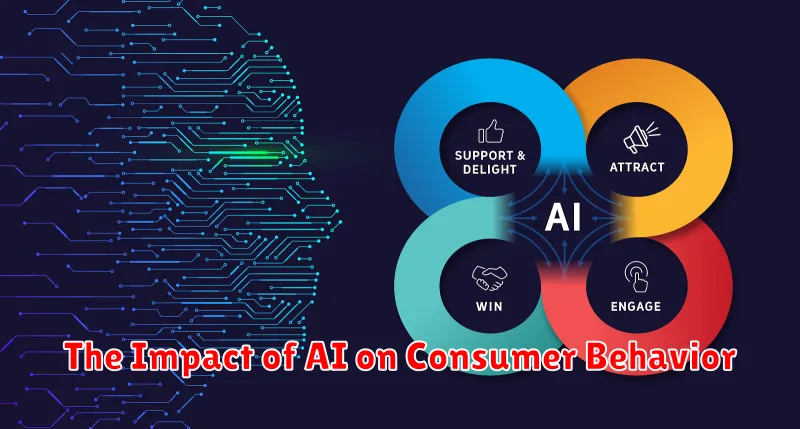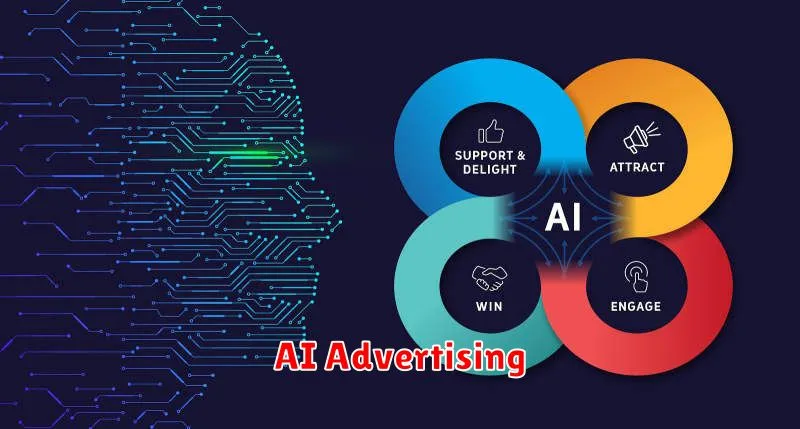The mobile advertising landscape is constantly evolving, driven by the relentless advancement of artificial intelligence (AI). From personalized ad experiences to sophisticated targeting strategies, AI is revolutionizing how brands connect with consumers on their mobile devices. As technology continues to mature, the lines between human and machine intelligence blur, paving the way for new possibilities in mobile advertising. This article delves into the latest trends in AI-driven mobile advertising, exploring how brands are leveraging these technologies to enhance engagement, optimize campaigns, and achieve better business outcomes.
From personalized ad recommendations powered by user data to real-time bidding algorithms that optimize ad spend, AI is transforming every aspect of mobile advertising. This dynamic shift empowers brands to understand their target audiences on a deeper level, fostering meaningful connections that resonate with individual needs and preferences. With AI as a driving force, the mobile advertising landscape is poised for continued innovation, offering exciting opportunities for brands to reach their audiences in new and innovative ways.
How AI is Enhancing Mobile Advertising

Artificial intelligence (AI) is transforming the mobile advertising landscape, ushering in a new era of personalized, efficient, and effective campaigns. From targeting to optimization, AI is revolutionizing how brands reach their target audience on mobile devices.
One of the key ways AI is enhancing mobile advertising is through personalized targeting. By analyzing user data, such as browsing history, app usage, and demographics, AI algorithms can create highly customized ad experiences. This allows advertisers to reach the right people with the right message at the right time, increasing the likelihood of engagement and conversions.
AI also plays a crucial role in ad optimization. By analyzing campaign performance data, AI algorithms can identify what works and what doesn’t, allowing advertisers to make real-time adjustments to their campaigns. This includes optimizing ad creatives, bidding strategies, and targeting parameters for improved results.
Furthermore, AI-powered fraud detection systems are essential for protecting mobile advertising budgets. These systems can identify and prevent fraudulent activities such as click fraud and ad impression manipulation, ensuring that advertisers are getting a fair return on their investment.
The use of AI in mobile advertising is still evolving, but its impact is already undeniable. As AI technology continues to advance, we can expect to see even more innovative and effective solutions for reaching mobile audiences. From personalized experiences to optimized campaigns, AI is shaping the future of mobile advertising, helping brands connect with consumers in meaningful and impactful ways.
The Role of AI in Personalized Ads
Artificial intelligence (AI) is revolutionizing the mobile advertising landscape, particularly in the realm of personalized ads. AI algorithms are now able to analyze vast amounts of user data, including demographics, browsing history, location, and interests, to deliver highly targeted and relevant advertising experiences. This personalized approach offers numerous benefits for both advertisers and consumers.
For advertisers, AI-driven personalization allows for more effective targeting, resulting in higher conversion rates and improved return on investment (ROI). By understanding user preferences, AI can deliver ads that are more likely to resonate with individual consumers, leading to increased engagement and ultimately, higher sales. Moreover, AI can optimize ad campaigns in real-time, adjusting bids and creative assets based on performance data to maximize efficiency.
From the consumer perspective, AI-powered personalized ads offer a more tailored and engaging advertising experience. Users are less likely to be bombarded with irrelevant ads, and instead, they encounter ads that are more relevant to their needs and interests. This enhances the overall user experience and reduces ad fatigue, making mobile advertising more tolerable for consumers.
AI is also transforming the way mobile advertising is delivered. Programmatic advertising, which utilizes AI algorithms to automate ad buying and placement, is becoming increasingly popular. This allows advertisers to reach their target audiences more efficiently and cost-effectively. Real-time bidding (RTB), another AI-powered technology, enables advertisers to bid on ad impressions in real-time based on user data and contextual signals, further optimizing ad delivery.
In conclusion, AI plays a critical role in personalized ads, driving efficiency for advertisers and enhancing the user experience for consumers. As AI technology continues to evolve, we can expect even more sophisticated and personalized advertising experiences in the future.
Challenges in Implementing AI for Mobile Ads
While AI holds immense potential for revolutionizing mobile advertising, its implementation comes with significant challenges. One prominent hurdle is the complexity of mobile environments. Mobile devices are highly diverse in terms of hardware, operating systems, and network conditions, making it difficult to develop AI models that perform consistently across all platforms. Furthermore, data privacy concerns are paramount, as mobile advertising relies heavily on user data. Ensuring responsible and ethical data usage is crucial to maintain user trust and comply with regulations.
Another major challenge is algorithm bias. AI models are trained on data, and if this data reflects existing biases, it can lead to discriminatory advertising practices. This is particularly problematic in mobile advertising, where targeting can be highly specific based on user demographics and behavior. Addressing bias requires careful data curation and ongoing monitoring of AI model performance. Additionally, limited explainability of AI models poses a significant challenge. While AI can deliver impressive results, understanding the reasoning behind its decisions is crucial for advertisers. Lack of transparency can hinder trust and make it difficult to identify and address potential issues.
Lastly, the evolving nature of mobile advertising adds complexity to AI implementation. As user behavior and advertising landscape constantly change, AI models need to be continuously updated and refined to maintain effectiveness. This requires ongoing investment in research, development, and infrastructure, which can be a significant challenge for many businesses.
Future Trends in AI-Powered Advertising
The mobile advertising landscape is constantly evolving, with artificial intelligence (AI) playing an increasingly pivotal role. As we move forward, several key trends will shape the future of AI-powered mobile advertising, enhancing its effectiveness and personalization.
Personalized Experiences: AI will continue to refine its ability to deliver hyper-personalized advertising experiences. By analyzing user data, AI algorithms can tailor ad content, format, and timing to individual preferences, maximizing engagement and conversion rates.
Contextual Targeting: Beyond demographics, AI will leverage contextual signals, such as location, time of day, and even device usage patterns, to deliver highly relevant ads. This contextual understanding will enable advertisers to reach users at the precise moment they are most receptive to their message.
Programmatic Advertising Automation: AI will further automate programmatic advertising, streamlining the process of buying and selling ad space. Machine learning algorithms will optimize ad bidding, placement, and frequency, ensuring efficient ad spend and maximizing return on investment (ROI).
Cross-Channel Optimization: AI will enable seamless cross-channel advertising campaigns, connecting user journeys across different platforms. By analyzing data from multiple touchpoints, AI algorithms can optimize ad creative and messaging for a consistent and engaging experience.
Transparency and Explainability: As AI plays a more prominent role in advertising, transparency and explainability will become paramount. AI systems will need to provide insights into their decision-making processes, empowering advertisers to understand the reasoning behind ad recommendations.
The future of AI-powered mobile advertising promises a more efficient, targeted, and personalized landscape. By embracing these trends, advertisers can unlock new opportunities for growth and engagement, delivering exceptional experiences to their target audiences.
The Impact of AI on Consumer Behavior

Artificial intelligence (AI) is rapidly changing the way we interact with the world, and its impact on consumer behavior is particularly profound. AI-powered tools are transforming how businesses understand and engage with their customers, leading to more personalized and effective marketing strategies.
One of the most significant ways AI is influencing consumer behavior is through personalization. AI algorithms can analyze vast amounts of data about individual consumers, including their browsing history, purchase history, and social media activity. This data can then be used to create highly tailored experiences, such as personalized product recommendations, targeted advertising, and customized content. This level of personalization can enhance customer satisfaction and increase engagement.
AI also enables businesses to predict consumer behavior with greater accuracy. By analyzing historical data and current trends, AI algorithms can anticipate customer needs and preferences. This allows businesses to optimize their marketing campaigns, inventory management, and product development strategies to better meet consumer demands.
The rise of AI-powered chatbots and virtual assistants is also changing the way consumers interact with businesses. These intelligent systems can provide instant customer support, answer questions, and even make recommendations. This shift towards automated interactions is leading to increased convenience and efficiency for consumers, while also allowing businesses to streamline their operations.
Overall, AI is playing a pivotal role in shaping consumer behavior. Businesses that embrace AI technology are well-positioned to understand their customers better, deliver more personalized experiences, and ultimately drive greater engagement and loyalty.
Case Studies: Successful AI-Driven Ad Campaigns
AI is transforming the advertising landscape, and mobile advertising is no exception. AI-powered tools are helping brands deliver more relevant and effective campaigns, ultimately leading to better ROI. Here are a few successful case studies showcasing the power of AI in mobile advertising:
Netflix used AI to personalize its mobile app advertising. By analyzing user data, Netflix was able to tailor ads to individual preferences, resulting in a 15% increase in app downloads. This strategy proved effective in targeting the right audience with the most relevant messaging.
McDonald’s leveraged AI to optimize its mobile ad campaigns. The company used AI to track user behavior and adjust ad spending in real-time, resulting in a 20% increase in app installs. This approach allowed McDonald’s to maximize their advertising budget and achieve their desired outcomes.
Spotify utilized AI to personalize its mobile ad experiences. The company used AI to identify user preferences and target them with relevant ads. As a result, Spotify saw a 10% increase in user engagement. Personalizing user experiences ultimately made them more likely to interact with ads and explore new content.
These case studies demonstrate the tangible benefits of AI-driven mobile advertising. By harnessing the power of data and automation, brands can achieve higher engagement, better ROI, and ultimately, more successful campaigns. As AI technology continues to evolve, we can expect to see even more innovative and impactful applications in the realm of mobile advertising.

